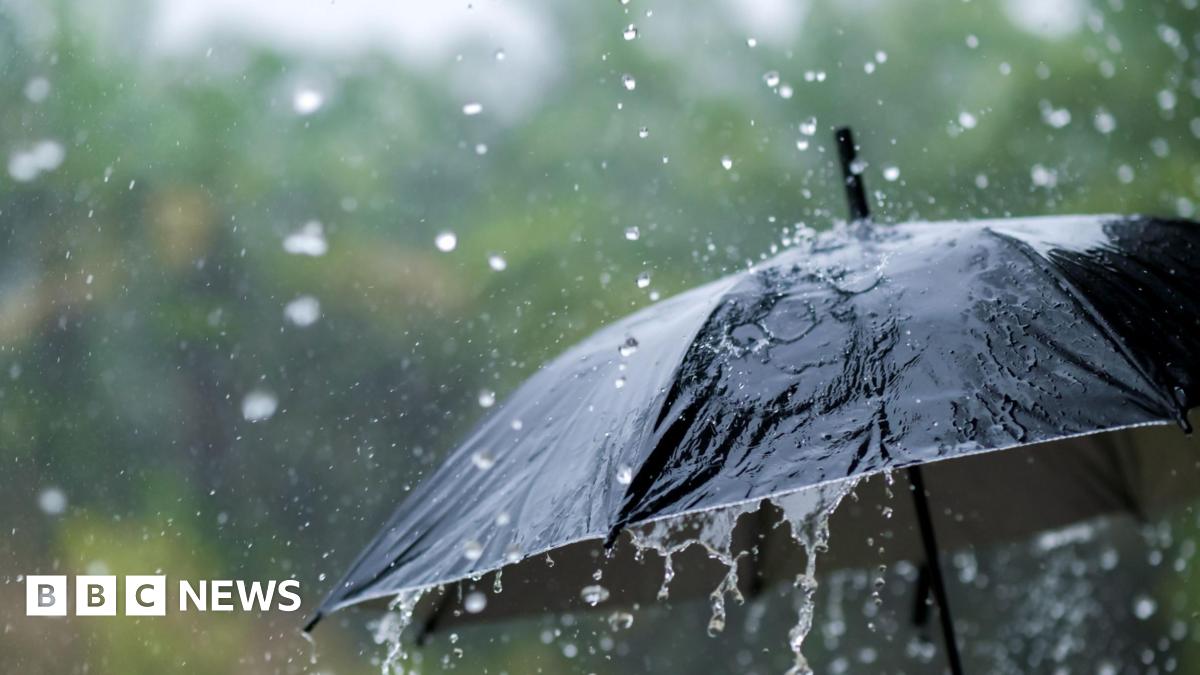Bussiness
Chancellor beat expectations on raising tax and raising borrowing
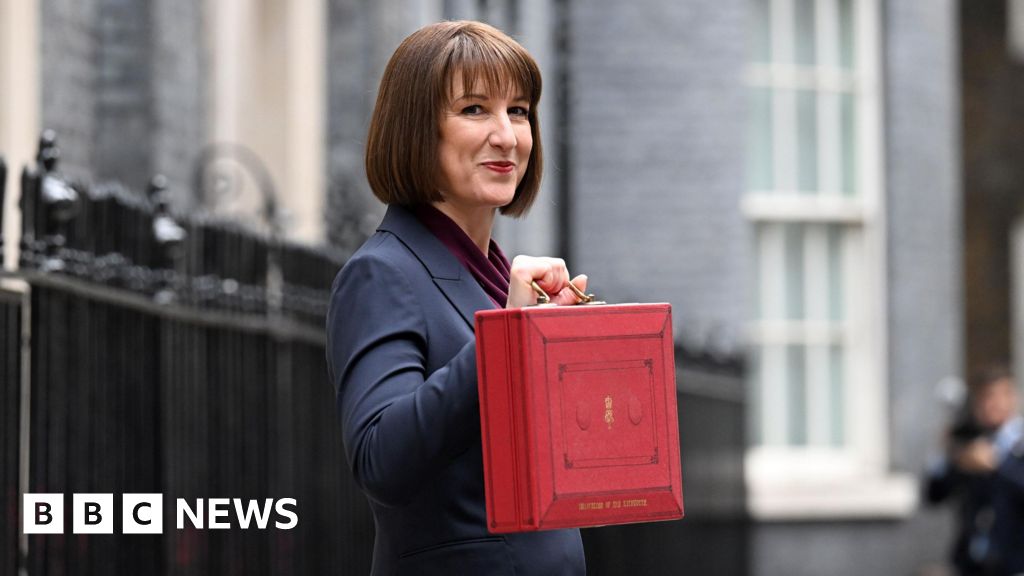
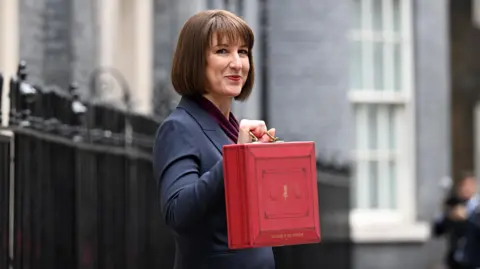 BBC
BBCRachel Reeves had three major tasks to perform in her first Budget: Sort out the public finances, boost economic growth and show that a Labour government is different from a Tory one.
The latter was a political requirement after four months of diminishing public confidence, if opinion polls are to be believed, in Labour making the difference it had promised.
Business has also been losing confidence that the economy was going to be put on a growth track, giving it the encouragement to invest.
The doubters about Labour being different have less to worry them now. This was a sharp break with the orthodoxy of past years. Rachel Reeves beat expectations of how far she would raise tax and raise borrowing in order to raise spending.
A Conservative government would have had to face the need for higher taxes or lower spending, but it surely would not have made the choices Labour’s chancellor has made.
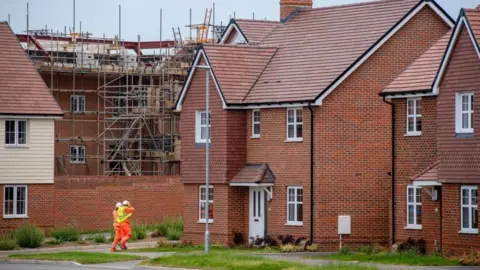 Getty Images
Getty ImagesSo what about sorting out the public finances? There is less room for the past fiction in drawing up budgets for instance, assuming there would be a sharp drop in the cost of housing refugees.
With improved independent oversight, the Budget ought to become more credible. But Rachel Reeves’ assumptions put a lot of weight on achieving even modest growth in the economy which should lead to higher tax revenues, thus reducing the need to borrow.
Just one of the risks is that a big boost to day-to-day current spending could be seen as an invitation to public sector trade unions to press for a bigger share of spending for their pay.
That could be a short-term gain for recruitment, retention and motivation, but does not buy sustained longer-term reform.
Tax and spending gamble
Similarly, a boost to capital spending is an invitation to the construction industry to price its bids higher, fuelled by skill shortages for the workers it will need.
The same two challenges apply to the ways in which the Scottish government deploys the money it has been allocated in the Treasury block grant.
So if public services are not put on a sustained path of improvement, or if growth doesn’t follow from strategic investment, the chancellor would be forced back to the hard choices of even higher taxes or spending cuts.
Things may work out just fine, but this represents a sizeable gamble on a strategy for higher tax, borrowing and spending.
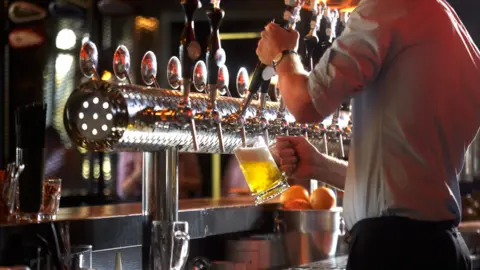 Getty Images
Getty ImagesThe gamble depends on the private sector buying into the encouragement for investment. Government cannot achieve its aims without businesses joining in with its growth endeavours.
This is the third task Rachel Reeves had to pull off. It is where the big trade-off within this budget has resulted in a disappointingly mediocre growth forecast over the next five years, hitting 2% next year, and below that in all the other years.
Business will readily tell you why. By clobbering employers with a £25.7bn increase in National Insurance contributions (rising to that level five years from now), plus a higher statutory minimum wage, plus higher tax on wealth hitting the incentives to grow businesses, plus the costs business assumes will come with worker rights legislation, plus the pressure to hire people who have been off work with long-term illness… there’s a lot not to like if you’re a finance director with an investment project on her desk.
Pay increases subdued
The NICs increase alone is seen by the Scottish Tourism Alliance, among others, as likely to lead to squeezed pay from next year, and redundancies “cannot be ruled out”.
Hospitality businesses could further restrict their opening hours, it’s claimed. So while workers are being told the tax increases will not hit the take-home figure on their pay slips, they will find future pay increases being subdued.
The Office for Budget Responsibility forecasts that around 60% of the NICs rise will be absorbed by employee pay next year and 40% by reduced profits (from which there will be less corporation tax raised).
That rises to 76% being absorbed by employee pay. It also expects reduced employment as a result, and there is a strengthened incentive to use self-employed workers than those on payroll.
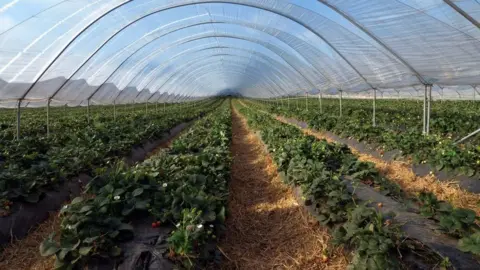 Getty Images
Getty ImagesOil and gas producers face a hit to investment allowances along with a rise from 75% to 78% in tax on profits. The OBR estimates that Rachel Reeves’ decisions will cut investment by 26%, with oil and gas output both falling. Again, higher tax revenue trumps the aim of higher economic growth.
The oil and gas industry is also paying a price for polluting. Yet if emissions are such a concern, it’s odd that 13 years of Tory chancellors opting not to raise fuel duty and one of them cutting it by 5p a litre, are to be continued by a Labour chancellor.
The OBR says the cumulative cost of those fuel tax decisions, measured as tax revenue foregone over those years, has passed £100bn. They don’t offer a figure for what it has cost in emissions.
Farming seems particularly unhappy about the level of subsidy allocated to them in England, with a consequent frozen grant level feeding through the block grant to Holyrood.
Furious rural response
The new hit to agriculture is in inheritance tax. The time-honoured tradition of passing a farm down the generations now comes with a 20% tax on farm valuation above £1m.
That seems a lot, but it doesn’t take that much to get above that level, when land and equipment are taken into account. The list price for a combine harvester can be over £750,000.
The OBR isn’t guessing at the market response to this change. As with Reeves’ boost to inheritance tax revenue by throwing the tax net around inheritable pension pots, the effect may not be seen for several decades.
But the response on day one of the Budget harks back to the days when a ban on fox hunting mobilised a furious rural response against Tony Blair’s Labour government.
Rural Britain, and perhaps rural England in particular, has a problem with urban-dominated Labour imposing its will.
Yet to an unprecedented extent, rural England and Wales are now represented by a lot of Labour MPs, so they may be relaying such concerns directly to ministers.
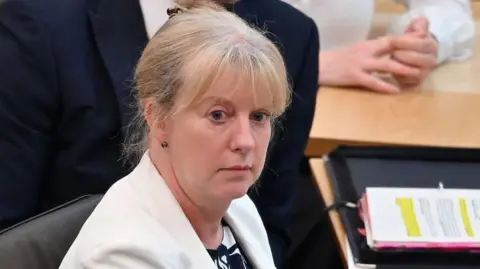 PA Media
PA MediaIn Scotland, the next stage is for Shona Robison, the finance secretary, to take the funds allocated to her – £1.5 billion in this financial year and £3.4 billion in 2025-26 – and allocate that in a draft Holyrood budget.
By splurging as much as she has, Rachel Reeves has made it difficult for SNP ministers to sustain their argument that Labour is just like the Tories and has returned to austerity.
Shona Robison’s response, so far, is that one year of funding boost is no guarantee of subsequent years. That’s true, but it’s not much of a political argument.
She says also that the allocation is in line with expectations. And that is probably her way of warning off her ministerial colleagues, public sector unions and opposition parties at Holyrood – one of which she has to persuade to back the budget – from thinking they can grab a piece of the unexpectedly large funding allocation.











